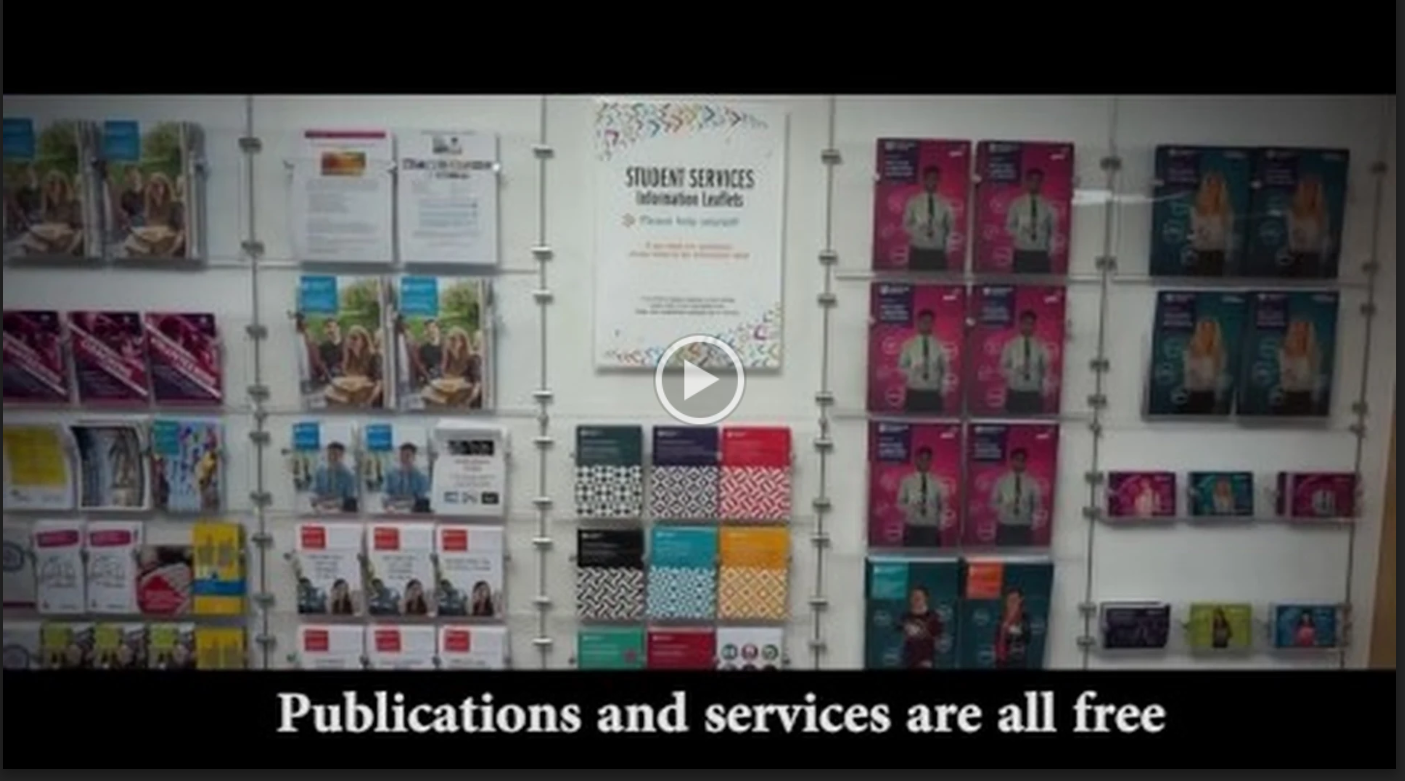Being a full-time student trying to balance different commitments and expectations can weigh heavily on you. As part of marking World Mental Health Day on the international blog, below are some steps to help you manage the weight of searching for a job as a student.
1) Get clarity on your direction
It’s easy to mistake being busy for being productive. You only have a set amount of time and energy, so knowing where to focus your job searching efforts will help you maximise your efforts and reduce unnecessary work and pressure. This includes understanding what motivates you, what skills you’d like to use in a job, what sort of work environment you want and so on. You can book a Careers Consultation to get help with this.
Putting pressure on yourself to get a certain type of job because it will impress people or to make others happy can be unhealthy and adds unnecessary stress as you may be pushing yourself to do something that deep down you don’t want to do.
2) Recognise your strengths
Many people feel they are reasonably good at a variety of things, but really being clear about your key strengths (including attributes, skills, experience and so on) can help you focus your job searching efforts, choose suitable extra-curricular activities, accept when you make mistakes in other areas and respond positively to any setbacks. You may not be as good as someone else at one particular thing, but that’s okay because you have strengths elsewhere. Remember employers aren’t looking for someone who is perfect at everything, and increasingly value the different strengths that people bring to a team.
This process is also closely linked with job satisfaction, as being able to do things you’re good at will enable contribute more in the workplace and have increased job satisfaction.
Understanding your strengths can also help as part of separating your self-esteem from external factors, such as whether you get a prestigious job you wanted or not.
3) Break activities down into smaller parts and plan ahead
Plan your time a week at a time instead of just day-by-day. Think of all your commitments and activities in the upcoming week – lectures, coursework, societies, work and so on, and try to plan your time so you that activities that you find draining are balanced by periods of rest or doing something enjoyable. For example, if you are trying to network with employers but find it stressful and draining you could consider planning something fun in afterwards as a reward for trying and to build your energy levels up again.
If you have tasks that you want to put off or are stressed about because they seem overwhelming, try planning to do them in smaller segments throughout the week. Breaking activities into smaller parts can make them more manageable. For example, rather than trying to complete an application form in one night the day before it’s due, try doing sections over 3 days.
4) Understand where you need help
No one is good at everything, and at the same time no one person achieves a lot in life purely on their own efforts without the support of others. Acknowledging where and when you need the help of others can help you move forward quicker and also feel pressure or negative self-talk. For example, maybe you want to attend the Careers Fair but feel shy and worried that you’ll say the wrong things to the employers there. Dropping into Careers Help Point for to talk about how to speak to employers can help you feel more confident rather than worrying excessively about this.
5) Listen to yourself
Sometimes you may feel you should be doing studying or working, but part of you just wants to relax or do something fun. Feeling like can cause you to procrastinate rather than get anything or properly relaxing – instead just feeling like you’re achieving nothing and not feeling any better.
This conflict is often caused by using the suppressing your emotions. Emotions often act as signals that something that you’re doing is or isn’t working. For example, maybe your emotions are indicating that you are trying to do too much, or that your approach to a particular task needs changing.
Taking regular time to pause and reflect on your emotions will help you be more balanced and successful in what you do. Of course there are times when you’ll need to force yourself to do something, but relying purely on willpower all the time is not a healthy strategy.
6) Dealing with setbacks
Everyone experiences setbacks in their job search at some point. Following on from the previous point, whenever you experience a setback it’s important to acknowledge your emotions. Research shows that taking time to embrace and recognise individual negative emotions you are experiencing is more effective than trying to suppress them. As you take time to do this, you may also be able to better identify things you could change or do better next time you’re applying for a job. Setbacks are part of life – in many instances as human beings we learn more from when something went wrong rather than when it went right.
– Christian Jameson-Warren


